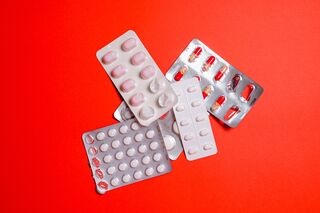Bipolar Disorder
Concern Among Experts as Bipolar Drug Priadel Discontinued
Calls to ensure Priadel, a first-line lithium drug, stays available in the U.K.
Posted September 27, 2020

Nine health bodies, including the Royal College of Psychiatrists and Royal Pharmaceutical Society, have written a letter to U.K. Secretary of State for Health and Social Care Matt Hancock MP urging him to ensure that Priadel remains available to treat patients in the U.K., stating that the discontinuation could pose a concern to patient safety.
Priadel is a brand of lithium commonly taken by people with bipolar disorder. Essential Pharma, who produce Priadel, had announced on Aug. 21, 2020 that they would withdraw the brand in the U.K. by April 2021, as “restrictions on permitted pricing” made the product “no longer viable.” Essential Pharma also owns the other major brand of lithium, Camcolit, which costs almost 12 times more than Priadel.
Currently, the price of a pack of 400mg Priadel tablets is £4.02, whereas Camcolit is priced at £48.18 per pack of 400mg tablets. Before Priadel was withdrawn, the price of Camcolit was significantly raised by Essential Pharma. It has been estimated the switch from Priadel to Camcolit would cost the NHS £15 million in drug costs. This does not account for extra costs that would be incurred by switching patients from one drug to the other.
In a statement, Essential Pharma said that withdrawing Priadel was “a difficult decision” but that they had “sought to minimise disruption to patients and to allow time for the transfer to suitable alternative lithium products by providing the Department of Health with an extended notice period of such discontinuance.”
The letter from various health bodies to Matt Hancock impressed that “lithium is an essential medication recommended by NICE guidance; it is proven to treat bipolar disorder and to prevent suicide,” with the authors reminding the U.K. Secretary of State for Health and Social Care that the sudden stopping of the drug poses a significant risk of rebound-relapse.
In a press release dated Sept. 17, the Royal Pharmaceutical College added: “Switching treatment can destabilize patients, risking either the medicine becoming less effective, or building to toxic levels causing severe side-effects including kidney damage. It, therefore, requires added reviews, extra tests, and close monitoring of patients, increasing pressure on primary care and mental health services already over-stretched by the pandemic.”
As explained in the letter, “a significant part of the workload will fall onto primary care because long-term lithium treatment is often prescribed and monitored within primary care. Anecdotally, up to half of all patients may be in this position; and GPs and Community Pharmacists are already reporting phone calls from concerned patients.”
The letter also raised the issue of switching brands of lithium meaning that patients would require extra blood tests, which unnecessarily exposes patients to the hazards associated with blood testing during the pandemic, and put added pressure on phlebotomy services.
Ciara Ni Dhubhlaing, President of the College of Mental Health Pharmacy, commented that “Pharmacists are already reporting stock shortages and we are deeply concerned about the withdrawal of this essential treatment for this vulnerable patient group. This will cost the NHS millions more each year at a time when finances and services are already stretched due to COVID-19.”
The letter concluded by requesting Hancock “personally intervene” so that Priadel remain available in the U.K. with an appropriate price structure, and called for this issue to be referred to the Office of Fair Trading.
References
Royal Pharmaceutical Society. (2020). Matt Hancock urged: Stop withdrawal of Lithium drug. Retrieved from: https://www.rpharms.com/about-us/news/details/Matt-Hancock-urged-stop-w…
Robinson, J. (2020). Health bodies make ‘urgent’ call to Matt Hancock to intervene in the proposed withdrawal of bipolar drug. The Pharmaceutical Journal, 305(7941), online | DOI: 10.1211/PJ.2020.20208369


